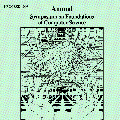
We provide several advances to the understanding of the class of Quantum Merlin-Arthur proof systems (QMA), the quantum analogue of NP. Our central contribution is proving a longstanding conjecture that the Consistency of Local Density Matrices (CLDM) problem is QMA-hard under Karp reductions. The input of CLDM consists of local reduced density matrices on sets of at most k qubits, and the problem asks if there is an n-qubit global quantum state that is consistent with all of the k-qubit local density matrices. The containment of this problem in QMA and the QMA-hardness under Turing reductions were proved by Liu [APPROX-RANDOM 2006]. Liu also conjectured that CLDM is QMA-hard under Karp reductions, which is desirable for applications, and we finally prove this conjecture. We establish this result using the techniques of simulatable codes of Grilo, Slofstra, and Yuen [FOCS 2019], simplifying their proofs and tailoring them to the context of QMA. In order to develop applications of CLDM, we propose a framework that we call locally simulatable proofs for QMA: this provides QMA proofs that can be efficiently verified by probing only k qubits and, furthermore, the reduced density matrix of any k-qubit subsystem of an accepting witness can be computed in polynomial time, independently of the witness. Within this framework, we show advances in quantum zero-knowledge. We show the first commit-and-open computational zero-knowledge proof system for all of QMA, as a quantum analogue of a "sigma" protocol. We then define a Proof of Quantum Knowledge, which guarantees that a prover is effectively in possession of a quantum witness in an interactive proof, and show that our zero-knowledge proof system satisfies this definition. Finally, we show that our proof system can be used to establish that QMA has a quantum non-interactive zero-knowledge proof system in the secret parameter setting.
翻译:我们为理解Qauntum Merlin- Arthur 检验系统(QMA)的等级提供了一些进步。 我们的核心贡献证明了一个长期的猜想,即本地密度数学(CLDM)的常识问题在Karp 下是QMA硬的。 端点的输入由最多 kqubits 的数组上本地降低的密度矩阵组成, 问题在于是否有一个正方位全球量子状态来接受所有 kqbit 本地密度矩阵。 在QMA 中将这一问题遏制在QMA 的质点和 QMA 独立度下。 刘[APROX- RANDOM 2006] 也预测, 本地密度数学的常识度问题在Karp 下是QMA 的常识点, 最终验证系统可以确认我们Grilo、 Slofstria 和 Yuen [FOCS 20199] 的比值代码设置, 简化其质点的证明, 质点在QMA 的直位的直位的直基质数据系统中, 显示一个直径端点的系统。



